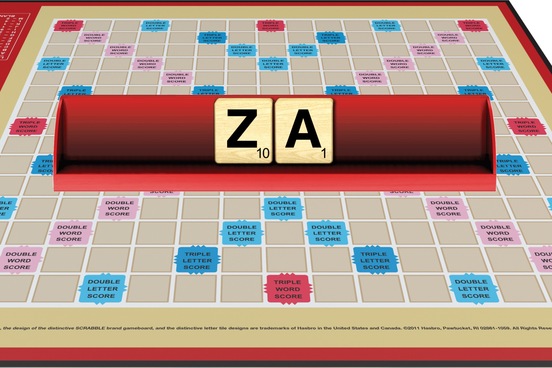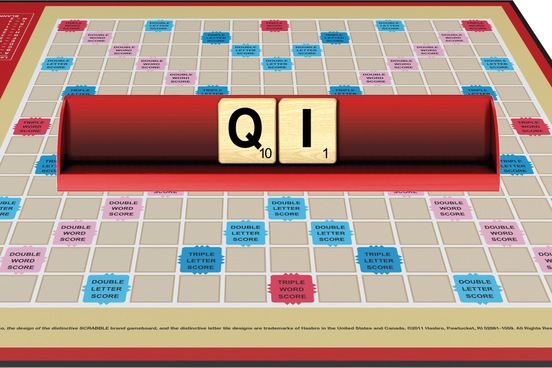Do you ever wonder where the words you use every day come from? Languages evolve and merge over time, leading to an eclectic array of words with fascinating origins. One such group of words ends with the delightful sound of “za”. Join us on a linguistic adventure as we explore some of the most intriguing words that conclude with this distinctive suffix.

Image: airkhruang.com
The World of Za: A Lexical Exploration
Words ending in “za” hold a particularly captivating charm that transcends mere definitions. They evoke distant lands, ancient traditions, and hidden meanings. Whether derived from Italian, Spanish, Russian, or any other tongue, these words have woven themselves into the tapestry of our language, imbuing it with a rich tapestry of cultures.
Embrace the “Za” Culture with Everyday Words
Unexpectedly, many commonly used words have found their home amidst the “za” family. Embrace a moment of leisure and savor the “pizza” that tantalizes with its savory aromas. Indulge in a “margarita,” letting its refreshing flavors dance upon your palate. The “plaza” beckons us with its vibrant energy and lively ambiance. We relish the “caprese” as it enchants us with its vibrant simplicity. And who can resist the irresistible allure of a “Prosecco,” its bubbly effervescence lifting spirits with each sip? These words, deeply entrenched in our daily vocabulary, reveal the pervasive influence of the “za” suffix in shaping our linguistic landscape.
When “Za” Expresses a Surprising End
Venture beyond the mundane, and you will discover that “za” often serves as a diminutive suffix, a linguistic tool that gently diminishes the size or significance of something. The “pizzeria,” for instance, is not merely a place that serves pizza; it conjures images of a cozy, family-run establishment. A “piazza” is not just any square; it’s a charming, intimate gathering spot, the heart of a bustling Italian town. These subtle nuances, conveyed through the diminutive “za” ending, add a touch of warmth and familiarity to our surroundings.

Image: layaranathali.blogspot.com
Unveiling the Slavic Soul through “Za”
While “za” finds its roots in Italian, Spanish, and other romance languages, its presence extends far beyond these linguistic borders. In Russian, Polish, and other Slavic tongues, “za” emerges as an intriguing preposition meaning “behind” or “beyond.” This association with spatial relationships permeates the Slavic mindset, shaping cultural perspectives and linguistic expressions. The word “zapach,” for example, translates to “scent” or “odor,” evoking the idea of something lingering in the air or following closely behind. Such instances demonstrate the profound impact of linguistic nuances on cultural understanding.
Discovering the Elusive “Za” in Science and Academics
Words ending in “za” are not confined to everyday language or cultural quirks. They also make their presence felt in specialized domains, carrying scientific and academic significance. In biology, the enzyme “catalase” plays a crucial role in cellular detoxification. In chemistry, the suffix “za” denotes a specific type of heterocyclic compound. The academic field of “dialectical materialism” employs the “za” suffix to emphasize concepts related to relationships and interactions. These scientific and scholarly terms showcase the adaptability of “za” beyond its colloquial contexts.
Delving into the History of “Za”
To fully grasp the etymology of words ending in “za,” we must embark on a historical journey. Many “za” words can trace their lineage to the Greek language, where the suffix “-za” carried the connotation of “a place for” or “a place of.” This ancient Greek influence is evident in words such as “synagogue,” originally meaning “a gathering place” or “assembly.” Over time, as languages evolved and borrowed from each other, the “-za” suffix found its way into various tongues, acquiring nuanced meanings and adaptations along the way.
Expanding Your Horizons with “Za”
As we delve deeper into the fascinating world of words ending in “za,” we uncover a treasure trove of additional terms that enrich our vocabulary. The “calzone” tantalizes with its folded, savory delights, while the “banza” exudes an exotic charm as an African tree. Nature enthusiasts may delight in the “maranza,” a remarkable plant that adorns gardens with its vibrant blooms. Those with a passion for architecture will appreciate the majestic “kaza,” a traditional Central Asian house. Exploring these words enriches not only our language skills but also our understanding of diverse cultures and traditions.
Embracing the Power of Suffixes
“Za” is but one example of the myriad suffixes that shape and enhance languages. These linguistic building blocks, when appended to words, can transform their meanings, adding nuances and specificities. Suffixes act as linguistic tools that enable us to express complex ideas with precision and efficiency. Words ending in “za” stand as testaments to the power of suffixes to mold and enrich language, adding layers of meaning and cultural significance.
Unveiling the Rhythmic Beauty of “Za”
It is not merely the meaning of words ending in “za” that enchants us but also their inherent rhythm and musicality. These words有一种动感, an inherent flow that makes them dance off the tongue. The repetition of the “za” sound creates a pleasing cadence, adding an auditory dimension to their semantic value. When we utter words like “pizza,” “margarita,” or “plaza,” we experience a subtle sensory delight that enriches our linguistic experience.
Words Ending In Za
Conclusion: “Za” Endings – A Linguistic Tapestry
Words ending in “za” are not mere linguistic curiosities; they are vibrant threads woven into the fabric of our language. From the savory delights of “pizza” to the historical significance of “synagogue,” these words carry meanings that range from the mundane to the profound. They have the power to evoke emotions, paint vivid pictures, and transport us across cultures. As we explore the fascinating world of “za” words, we not only expand our vocabulary but also gain insights into the nuances of language and its ability to shape our understanding of the world. Embracing the diversity of endings enhances our linguistic repertoire and allows us to appreciate the symphony of meanings and associations that words hold.